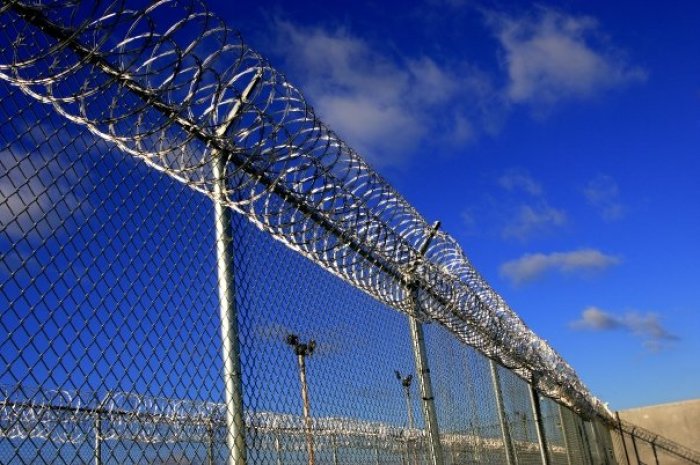
Lawmakers in California have killed a proposed measure aimed at addressing safety concerns in women's prisons stemming from a 2020 law allowing inmates to request housing based on their gender identity rather than their biological sex.
Introduced by Republican state Sen. Shannon Grove, Senate Bill 311 seeks to establish separate housing units for trans-identified males within women's prisons, prohibit convicted sex offenders from transferring to these facilities and prioritize the safety and privacy of all inmates.
The legislation was partly a response to SB 132, passed in 2020, enabling California inmates to request housing based on gender identity. According to a 2020 CDCR report, more than 33% of male inmates requesting transfer under SB 132 were registered sex offenders, many of whom with criminal histories of rape, incest and child sexual abuse.
During a heated debate at a California Senate Public Safety committee hearing last week, Amie Ichikawa, founding member and executive director of Woman II Woman and a rape survivor who was incarcerated at the Central California Women's Facility (CCWF), delivered powerful testimony on the dangers she sees in transferring violent sex offenders from high-security men's prisons to women's facilities with lower security measures.
"Under existing law, transfers from men's to women's prisons are housed with the general population in our state's two only women's prisons. These folks include violent sex offenders coming from men's level four facilities," Ichikawa said.
According to Ichikawa, some inmates exploit transgenderism to gain access to women's prisons, leading to abuse.
"Transfers who have gained the system using false trans identities have assaulted, threatened and intimidated female prisoners, many of whom are survivors of severe sexual and physical abuse," she said.
Urging lawmakers to support SB311, she framed it as a matter of public safety.
"Housing violent and predatory men who have gained the system with vulnerable women shouldn't be a political issue. It's a public safety and human rights issue."
Tisha Crosslin, a founding member of Woman II Woman who was formerly incarcerated for nearly 20 years, shared a chilling account of learning in 2012 that a convicted rapist, who had electrocuted a mother and daughter during an assault, was approved to transfer to a women's prison.
"The women inside, many of whom, like me, survived sexual violence, were devastated," Crosslin said. She recounted the predator's audacity in requesting a job as an electrician, adding, "The trauma of that moment, the horror, the helplessness cannot be overstated. Our last safe place had been forcibly penetrated without our consent."
Crosslin passionately advocated for SB311, warning that without its safeguards, "these kinds of forced situations will continue, and it will get worse." She urged lawmakers to act and to do so quickly: "Women's lives are at stake, and just because they are incarcerated doesn't mean their lives don't matter."
Opponents of the bill, including representatives from the California Coalition for Women Prisoners and the Prison Law Office, argued that SB311 unfairly targets transgender-identified inmates who face high rates of sexual violence in prisons. They claimed the bill diverts attention from the primary issue of staff-perpetrated abuse, citing 2023 data showing 68% of sexual violence reports in California prisons involved staff.
Critics also labeled SB311 as part of a broader anti-transgender agenda, with Democratic state Sen. Scott Weiner calling it "a solution in search of a problem" and part of a "national culture war targeting trans people."
Despite impassioned testimony from Ichikawa, Crosslin and others, SB311 failed to advance out of the committee after receiving only one vote in favor. Ichikawa said that while she wasn't surprised by the outcome, she achieved her objective, at least in the short term.
"I expected most of the committee members to vote no," she told CP Wednesday. "My goal was to get our testimonies and the letters from the women inside on the record."
While it's unclear what the next steps will be, Ichikawa remains optimistic that legislation will be passed at some point, but only with a broader coalition of support.
"I think there are ways to get a bill that will ensure basic human rights are extended to the incarcerated female population. It's going to take the message being delivered by transgender prisoners, otherwise our elected officials will not have ears to hear."
"Fortunately, I have friends everywhere and partners who are ready and willing to go to bat for us," she added.
Greg Burt, vice president of the conservative California Family Council, said, despite its failure to move forward, SB311 was a "courageous effort" to address the "tragic fallout" of SB132.
"This bill shined a light on the painful truth that women's intimate spaces have been invaded and their cries for help ignored," Burt said. "The Bible teaches that all people are made in the image of God, including those behind bars. Their dignity is not erased by their criminal record."
Burt concluded his statement with an appeal to Proverbs 31:9: "Open your mouth, judge righteously, defend the rights of the poor and needy."